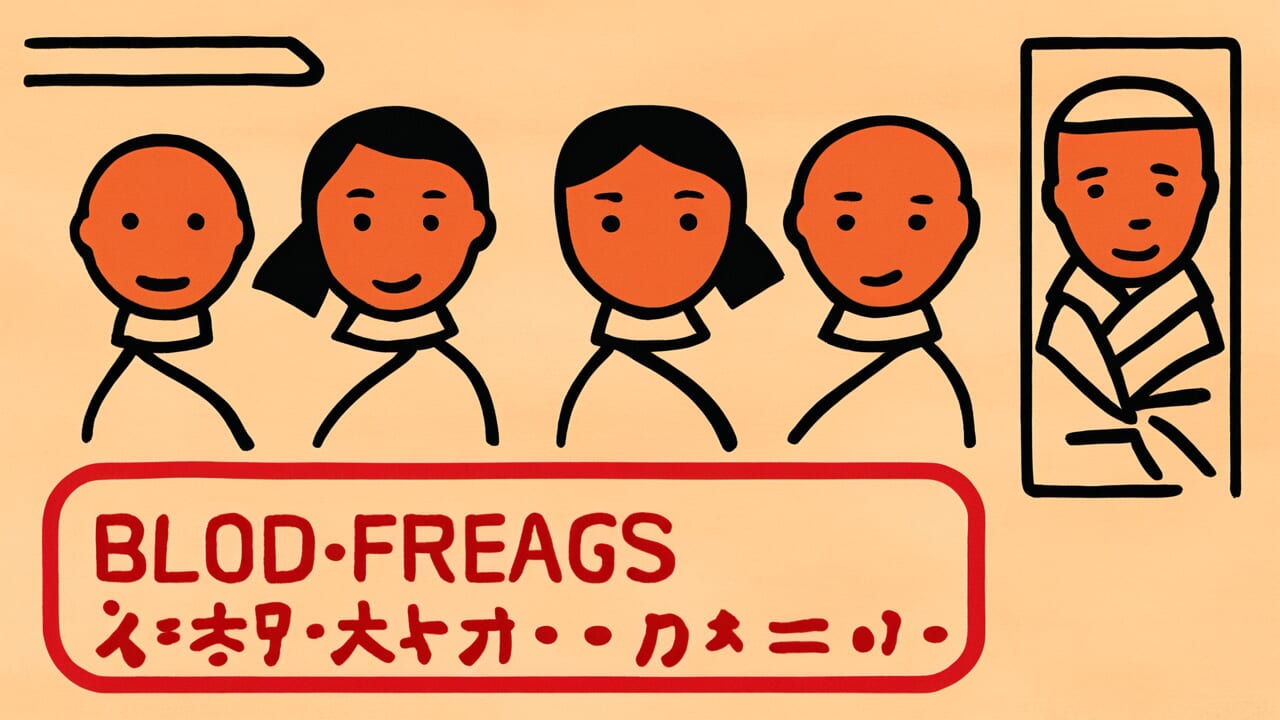How to Read “Blood lineage lasts seven generations”
Chi no suji wa shichidai
Meaning of “Blood lineage lasts seven generations”
“Blood lineage lasts seven generations” is a proverb that means the influence of blood relationships continues to affect descendants seven generations into the future.
It expresses the idea that traits inherited from ancestors—such as characteristics, talents, and temperament—don’t just pass from parent to child.
They continue through grandchildren, great-grandchildren, and even further generations in an unbroken line.
This proverb is used when talking about specific tendencies or characteristics seen in family lines.
For example, it explains why a family might produce outstanding artists generation after generation, or why many family members choose the same profession.
The saying applies not only to positive traits but also to characteristics that families should be mindful of, all recognized as influences of bloodline.
Modern genetics has scientifically proven that genetic information truly passes across generations.
However, when this proverb was created, people understood it to mean something broader than just genetics—the overall influence of family lineage.
Origin and Etymology
The exact first appearance of this proverb in literature hasn’t been identified. However, it’s clearly an expression deeply connected to traditional Japanese views on bloodlines.
The number “seven generations” holds special meaning. In Buddhism, there’s a custom of honoring ancestors up to seven generations back.
Confucian thought also emphasized the idea that blood relationships have long-lasting influence.
Japan has long had a culture that values family lineage. In samurai society especially, the purity of bloodlines was strongly emphasized.
The expression “blood lineage” symbolizes how inherited traits and characteristics flow through descendants, just as blood circulates through the body.
Even before medical concepts of genetics existed, people observed through experience the similarities between parents and children and the inheritance of family traits.
Using the specific number seven expresses the recognition that blood influence doesn’t end after just one or two generations.
It extends to distant descendants. This reflects a worldview where not just physical features but also temperament, talent, and even destiny were determined by bloodline.
Usage Examples
- That family has been doctors for seven generations, so “blood lineage lasts seven generations” is really true
- Seeing her musical talent, “blood lineage lasts seven generations” is well said indeed
Universal Wisdom
The proverb “blood lineage lasts seven generations” contains a fundamental question about how humans try to understand their own existence.
Where exactly do we come from, and what have we inherited? This question has captivated people’s hearts across all eras.
Behind this proverb’s long transmission lies humanity’s deep desire for self-understanding.
By feeling that something flowing within us has continued from distant ancestors, we can find meaning and weight in our existence.
The sense of being part of a larger flow rather than living in isolation brings both comfort and responsibility.
This proverb also demonstrates the sharpness of human observation. In an era without scientific knowledge of genetics, people intuitively understood through experience and observation that something passes across generations.
Similar gestures between parents and children, talent tendencies seen in family lines, repeating behavior patterns—by observing these, people sensed the power of invisible bonds.
Thinking more deeply, this proverb also includes the perspective of responsibility toward the future.
What we inherit doesn’t end with our generation but continues forward. This recognition directly connects to the question of how we should live today.
When AI Hears This
Genetic information precisely halves with each passing generation. You inherit 50% from each parent, 25% from each grandparent, and 12.5% from each great-grandparent.
Going back seven generations, that’s 2 to the 7th power, or 1/128—approximately 0.78%.
What’s interesting here is the concept of “detection threshold” in information theory.
In communication engineering, there’s a boundary where signals become buried in noise and can’t be identified.
Just as a weak cell phone signal causes calls to drop, information stops functioning meaningfully below a certain strength. The same thing happens with human genetic information.
More importantly, genetic transmission includes “noise” called recombination. Chromosomes inherited from parents are randomly mixed.
This means you might not inherit any genes from a specific ancestor seven generations back. Even that simple calculation of 0.78% isn’t guaranteed.
This has the same structure as a communication channel where noise degrades the original signal further.
The number seven represents evidence that humans experientially identified “the critical point where information no longer holds meaning” through the dual effects of dilution and noise.
It’s remarkable that the limit where error correction becomes necessary in digital communication and the limit where bloodlines fade can be explained by the same mathematical principle.
Lessons for Today
What this proverb teaches modern people is the importance of viewing our existence within a larger flow.
We didn’t suddenly appear in this world. We were born carrying something inherited through a long history.
That might be physical characteristics, or it might be talents and temperament.
This recognition teaches us two important attitudes. One is humility.
The good qualities we possess aren’t acquired by our efforts alone—they’re also gifts inherited from our predecessors.
The other is hope. Even if we face challenges today, they’re not ours alone but formed over a long time.
That’s why we can face them without rushing.
At the same time, this proverb suggests responsibility toward the future.
What you choose today and what you value won’t end with your generation. They may influence the next generation and the one after that.
In this sense, we stand at an important point connecting past and future.
Know yourself, inherit good things, and pass even better things forward. Isn’t that what we can do?



Comments